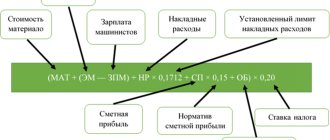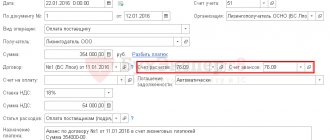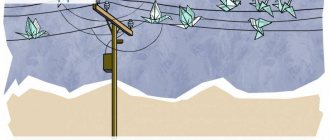Many owners of urban real estate located in apartment buildings decide to create an HOA. This is done not only to optimize utility costs, but also to maintain residents’ property in proper technical condition. Each partnership of real estate owners must be organized in accordance with the regulations of Federal law. At the same time, the HOA is required to maintain accounting records and submit reports generated based on the results of the reporting periods to the tax office.
The purpose of creating a homeowners association
An HOA is formed for the effective management of real estate owned by the participants of this association. Owners of housing in apartment buildings most often unite in partnerships, but this is not prohibited for owners of private houses located on neighboring plots.
The HOA is formed for:
- maintaining the property of the owners in proper condition;
- its timely repair;
- creating conditions for comfortable living.
In addition, the partnership is not prohibited from engaging in commercial activities and generating income. This could be small paid repair services for residents of the association, the provision of real estate for rent, advertising, etc.
About business
The activities of homeowners' associations are regulated by the Civil Code of the Russian Federation, as well as the Housing Code of the Russian Federation (hereinafter referred to as the Housing Code of the Russian Federation). The rules on partnerships of real estate owners apply to homeowners' associations (Articles 123.12 - 123.14 of the Civil Code of the Russian Federation). Based on paragraph 1 of Article 135 of the Housing Code of the Russian Federation, a homeowners' association (hereinafter - HOA, partnership) is recognized as a type of real estate owners' association, which is an association of owners of premises in an apartment building, created for the purpose of: - joint management of common property in an apartment building or in the cases specified in paragraph 2 of Article 136 of the Housing Code of the Russian Federation, the property of the owners of premises in several apartment buildings or the property of the owners of several residential buildings; — ensuring ownership, use and disposal of common property in an apartment building or joint use of property,
Therefore, the main issue in keeping records in the TSN becomes the attribution of certain revenues to the taxable income of the organization.
Article 151 of the Housing Code implies that a homeowners’ association can receive four main types of income:
- income from the economic activities of the partnership;
- subsidies for ensuring the operation of common property in an apartment building, carrying out current and major repairs, providing certain types of utilities and other subsidies;
- other supply.
- mandatory payments, entrance and other contributions of members of the partnership;
It would seem that at least the first type of HOA income should not raise doubts that it is not necessary to include it, because contributions to a non-profit company are not income. This is confirmed by specialists from the Ministry of Finance in their letter dated December 8, 2010 No. 03-03-07/41.
Sources of partnership funds
Partnership funds can be formed through:
- membership fees, entrance fees, and other similar income;
- subsidies;
- income from the organization's commercial activities.
Money received as membership or other fees does not form the partnership’s income and is used to pay for utilities and maintain housing in proper condition. When carrying out activities and concluding contracts, the HOA must act only in the interests of home owners.
A partnership is not an economic entity created to conduct commercial activities. The list of activities permitted for such organizations is closed and has strict restrictions.
The HOA can carry out:
- maintenance and repair of real estate in the partnership;
- construction of additional real estate;
- provision of premises for rent.
The revenue that goes to the organization’s accounts from this forms special funds. It can be spent in those areas that are provided for by the charter of the partnership.
What taxes does TSN pay?
Targeted funds, for example, payments for housing and communal services or deductions for major repairs are not subject to taxation.
If there are targeted revenues, then the HOA needs to maintain differentiated accounting. If this is not done, then such financial receipts will be considered by the fiscal authorities as taxable.
Most often, the source of income for partnerships is the rental of some part of the common property. Profit from this after payment of tax can be spent only for the purposes specified in the charter.
This tax is paid at the federal and regional levels.
Accounting statements of the partnership
In accordance with accounting legislation, HOAs are required to generate and submit reports to tax services, the Pension Fund, and statistical authorities. The partnership's financial statements for the year include:
- balance;
- income statement;
- report on the intended use of funds.
The responsibility for accounting and reporting remains with the HOA, even if it does not conduct commercial activities and applies the simplified tax system. In addition to the above forms, the HOA is required to maintain a register of members of the partnership.
Tsn and usn
The main thing when switching to the simplified tax system is to comply with the criteria - the annual turnover of the enterprise should not exceed 20,000,000 rubles!
By the way, this is precisely why I considered the TSN, because there is always a risk of falling off the simplified tax system if the maximum permissible level of revenue is exceeded, pay special attention to this!
In the context of the Civil Code of the Russian Federation, intermediary activities can be carried out in relation to any type of business activity and, strictly speaking, is not a separate type of business activity. For example, retail trade can be carried out on one’s own behalf, or on behalf of the Principal, under a commission agreement (see.
Civil Code of the Russian Federation). In both cases, the type of activity will be retail trade. When choosing UTII for organizations, it should be taken into account that the obligation to maintain accounting records when applying UTII is not removed.
One should also take into account the desire of legislators and local authorities to constantly increase the amount of imputed
Tax accounting for homeowners associations
Features of accounting under the simplified tax system
In most cases, the HOA prefers a simplified system. The main advantage of the simplification for HOAs is a reduction in insurance premiums (20% rate). The HOA accountant must distinguish between receipts that are classified as income and amounts that do not fall under this definition and, accordingly, under taxation.
The following income does not count as partnership income under the simplified tax system:
- contributions;
- from the owners for the maintenance of the property;
- from the budget for real estate repairs, including capital ones.
According to the charter of the HOA, the main purpose of its creation is the maintenance of common real estate and the provision of utilities to members of the partnership.
Therefore, all funds received by the partnership for such purposes are not included in the income of the organization. It is necessary to take into account that funds received for these purposes from HOA members are not considered income. But funds received for the same purposes from persons who are not members of the partnership are considered income and are subject to taxation.
Cash receipts that are subject to and non-taxable must be accounted for separately. It is also important to ensure separate accounting of expenditures of funds received as targeted revenues. Therefore, the priority areas of work for an HOA accountant include drawing up cost estimates and distribution of costs, organizing analytical accounting of the organization’s costs.
Paying taxes when using the OSNO regime
Homeowners' associations using OSNO are payers of income tax and VAT.
- Income tax. Funds related to targeted financing are exempt from the accrual and payment of this tax. These are amounts received from the owners of housing in the partnership for the repair and maintenance of the HOA premises in proper condition. All income and expenses of the HOA must be taken into account separately. If this condition is not met, then the amounts of targeted financing are subject to taxation in accordance with the generally established procedure. Entry, membership, share fees, donations, and funds in reserve for repairs are not subject to taxation. Tax accounting of amounts received as income in HOAs is no different from accounting in other organizations engaged in commercial activities.
- VAT. HOAs that do not apply special tax regimes are VAT payers. This tax does not apply to targeted funds, the receipt of which is not determined by the commercial activities of the organization. There are VAT benefits for partnerships. The sale of HOA services for the maintenance and repair of premises is not subject to VAT.
Results
Accounting and reporting of HOAs have their own specifics, determined by the goals and objectives of the HOA, as well as the functions of a particular HOA in the management of common property.
Features of accounting and tax accounting in a particular HOA are reflected in its accounting policies. Read about the nuances of its formation in the article “Formation of accounting policies in HOAs (nuances)” .
You can find more complete information on the topic in ConsultantPlus. Free trial access to the system for 2 days.
Reflection of transactions on HOA accounts: postings
Business transactions in the accounting accounts are reflected as follows:
| Account correspondence | Contents of operation | |
| Debit | Credit | |
| 76 | 86 | Debt of a member of the partnership for contributions |
| 62 | 90 | Debt of a property owner who has not entered into a partnership |
| 26 | 70, 69,02, 10 | Expenses for maintaining HOA property |
| 26 | 68 | Calculation of a single tax under the simplified tax system |
| 26 | 60 | Costs of maintaining the premises of the partnership (services from third party providers) |
| 86, 20 | 26 | Costs have been distributed between HOA members and premises owners who have not joined the partnership |
| 90 | 20 | Expenses for maintaining property that does not belong to HOA members are written off |
| 90 | 51 | Bank expenses |
| 99 | 84 | Reformation of the balance sheet (in the case when the financial result is profit) |
| 84 | 86 | Replenishment of target financing funds from retained earnings |
| 76, 62 | 84 | Claimed loss to be covered |
| 86,20 | 96 | Creation of a repair fund |
Example 1. As a result of the commercial activities of the partnership, a financial result was formed over the year - a profit in the amount of 3,000 rubles. This amount, in accordance with the decision of the HOA members, was spent on landscaping the area in the courtyard of the house. The following entries were made in the accounting records of the partnership:
| Account correspondence | Sum | Contents of operation | |
| Debit | Credit | ||
| 84 | 86 | 3000 | Profit from commercial activities is included in targeted financing |
| 26 | 60 | 3000 | Costs for landscaping the site (performed by the contractor) |
| 60 | 51 | 3000 | Transferred to the contractor for site improvement work |
| 86 | 26 | 3000 | Write-off of targeted financing funds used for their intended purpose |
| 012 | 3000 | The constructed site has been registered | |
What taxes do homeowners' associations pay if they are registered in 2021?
Membership fees Membership fees are mandatory payments that are paid by each member of the partnership at the frequency specified in the constituent documents. Membership fees are intended to cover the costs of:
- remuneration of the board of directors of the partnership;
- remuneration of temporarily hired personnel;
- remuneration for the work of members of the audit commission.
- remuneration of workers who are members of the HOA;
Targeted revenues from other enterprises or individuals aimed at maintaining non-profit organizations (which include HOAs) and for their statutory activities, used for their intended purpose, are not recognized as an object of taxation.
- Land tax. By analogy with the previous paragraph, it is paid only if the HOA owns a separate land plot. The tax base is the cadastral value.
Accounting for utility bills
It is necessary to pay attention to the procedure for accounting for utility payments received from the owners of premises when applying the simplified tax system in the partnership. The organization's charter may stipulate its obligation to provide such services to its members and enter into contracts with suppliers on their behalf.
In this case, only the difference between the amount of income from utility bills and their cost is subject to taxation, i.e. remuneration to the partnership for the services of an agent. Payments by those property owners who have not entered into a partnership are subject to taxation in full, unless agency agreements are concluded between them and the HOA .
Rules for the operation of management entities, homeowners' associations and residential complexes under a simplified taxation system
After all, cooperatives and partnerships are difficult to classify as large businesses, and management companies do not always grow into medium-sized enterprises. Nevertheless, judicial practice has developed when courts recognize receipts of payments for utilities and housing services as income from management companies, homeowners' associations, and housing complexes.
Therefore, there is no stable opinion about whether the simplified tax system makes their life easier. We also note that with the simplified tax system, the taxpayer has the right to choose one of two objects of taxation, indicated in: income; income reduced by expenses. 4705The transition to a simplified taxation system is voluntary.
Organizations and individual entrepreneurs can do this. You can switch to the simplified tax system if, based on the results of 9 months of the year in which you submit an application to switch to the simplified tax system, the organization’s income did not exceed 45 million rubles excluding VAT, and from January 1, 2021 - 112 .5 million (). In accordance with the simplified tax system, you can only switch to it from January 1 of the new year.
Comparison of taxation systems and the relevance of their application by retail enterprises
At first, I didn’t even want to consider it as an option, due to the special difficulties when using it by small entrepreneurs, but I still propose to consider it for reasons known to me and which I will later bring to your attention. The main difficulty in using TSN is proper record keeping. It is not easy to find a qualified accountant, and the fee for which he will agree to work can be very disappointing. Even if the accountant is sufficiently qualified, there is always a risk of accounting errors, which may cause a corresponding reaction from the tax authorities with subsequent penalties. If you look at the table, you will notice that when using TSN you will not be able to save on taxes.
For entrepreneurs just starting their business, the simplified tax system (USN-15) is a real way to reduce the cost of paying taxes. For those who use TSN and USN-6, I recommend switching to USN-15 by submitting an application to the Tax Service at the place of registration in November. The main thing when switching to the simplified tax system is to comply with the criteria - the annual turnover of the enterprise should not exceed 20,000,000 rubles! By the way, this is precisely why I considered the TSN, because there is always a risk of falling off the simplified tax system if the maximum permissible level of revenue is exceeded, pay special attention to this!
Accounting for contributions for major repairs
The Capital Repair Fund is created through contributions from real estate owners. Its purpose is to reserve funds for expensive repairs in the future. Contributions are transferred by the owners of premises located in apartment buildings on a monthly basis (Part 1 of Article 169 of the Housing Code of the Russian Federation).
- D76 – K96 – monthly accrual of contributions to the capital repair fund to the owners;
- D55 – K76 – monthly receipts of contributions for major repairs from the owners;
- D96 – K60 – 55 million rubles, the cost of repairs that will be carried out by the contracting structure;
- D60 – K51 (55) – payment for the contractor’s services was made (RUB 55 million);
- the balance of funds in the fund (account 96) amounted to 500.6 million rubles. (555.6 – 55).
Tsn and usn
In the context of the Civil Code of the Russian Federation, intermediary activities can be carried out in relation to any type of business activity and, strictly speaking, is not a separate type of business activity. For example, retail trade can be carried out on one’s own behalf, or on behalf of the Principal, under a commission agreement (see the Civil Code of the Russian Federation). In both cases, the type of activity will be retail trade.
When choosing UTII for organizations, it should be taken into account that the obligation to maintain accounting records when applying UTII is not removed. You should also take into account the desire of legislators and local authorities to constantly increase the amount of imputed tax by applying various coefficients.








